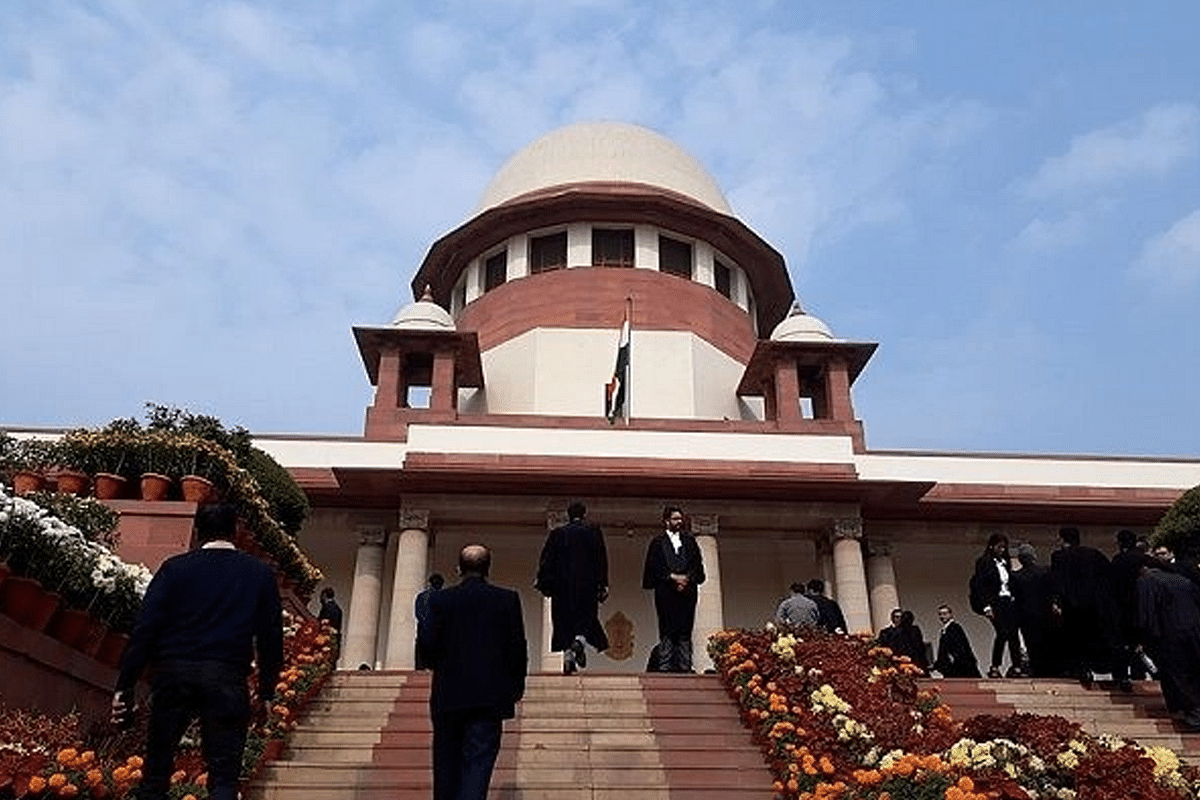Legal
Objections On Special Marriage Act Can Be Adequately Examined By Smaller Benches, Five-Judge Bench Judgement Not Needed: Supreme Court

The Supreme Court of India (Wikimedia Commons)
A Constitutional Bench of five judges, led by Chief Justice of India D Y Chandrachud and including justices S K Kaul, S Ravindra Bhat, Hima Kohli, and P S Narasimha, concluded its deliberations on the matter of same-sex marriage under the Special Marriage Act (SMA) of 1954.
The verdict, disclosed in a 3:2 split, also addressed the issue of "civil unions" for non-heterosexual couples.
Throughout the proceedings, which spanned from April to May, senior advocates such as Abhishek Singhvi and Raju Ramachandran attempted to address the procedural prerequisites for marriage solemnisation under the SMA, particularly focusing on the "notice and objections regime" outlined in Sections 5-9.
In the extensive 366-page ruling, the Supreme Court asserted that this matter did not warrant a ruling by a five-judge bench, suggesting that a smaller bench can adequately handle it.
During the hearings in May, Singhvi emphasised the non-discriminatory nature of personal laws in the country, contrasting them with the SMA.
He argued against the mandatory 30-day notice period mandated by the SMA.
In response, the court criticised the obligatory 30-day notice period, describing it as "patriarchal" and susceptible to societal interference.
Justice Bhat noted that such laws were established at a time when women lacked agency.
Chief Justice Chandrachud added that this notice period exposed individuals to societal scrutiny, including authorities like the Superintendent of Police and the District Magistrate.
Moreover, he remarked that if the intention behind the notice period was to prevent potentially unlawful marriages, the method employed was disproportionate.
Solicitor General Tushar Mehta, representing the Centre, reminded the court that it had previously stated its intent not to delve into this notice period aspect.
The CJI acknowledged this and mentioned that this aspect would be dealt with separately.
However, Singhvi pointed out that petitions addressing this matter were already pending before the court.
The CJI indicated that the notice requirement pertained to those unequivocally entitled to marry, implying its lack of relevance to the present case, where the petitioners were denied the right to marry.
Support Swarajya's 50 Ground Reports Project & Sponsor A Story
Every general election Swarajya does a 50 ground reports project.
Aimed only at serious readers and those who appreciate the nuances of political undercurrents, the project provides a sense of India's electoral landscape. As you know, these reports are produced after considerable investment of travel, time and effort on the ground.
This time too we've kicked off the project in style and have covered over 30 constituencies already. If you're someone who appreciates such work and have enjoyed our coverage please consider sponsoring a ground report for just Rs 2999 to Rs 19,999 - it goes a long way in helping us produce more quality reportage.
You can also back this project by becoming a subscriber for as little as Rs 999 - so do click on this links and choose a plan that suits you and back us.
Click below to contribute.
Latest